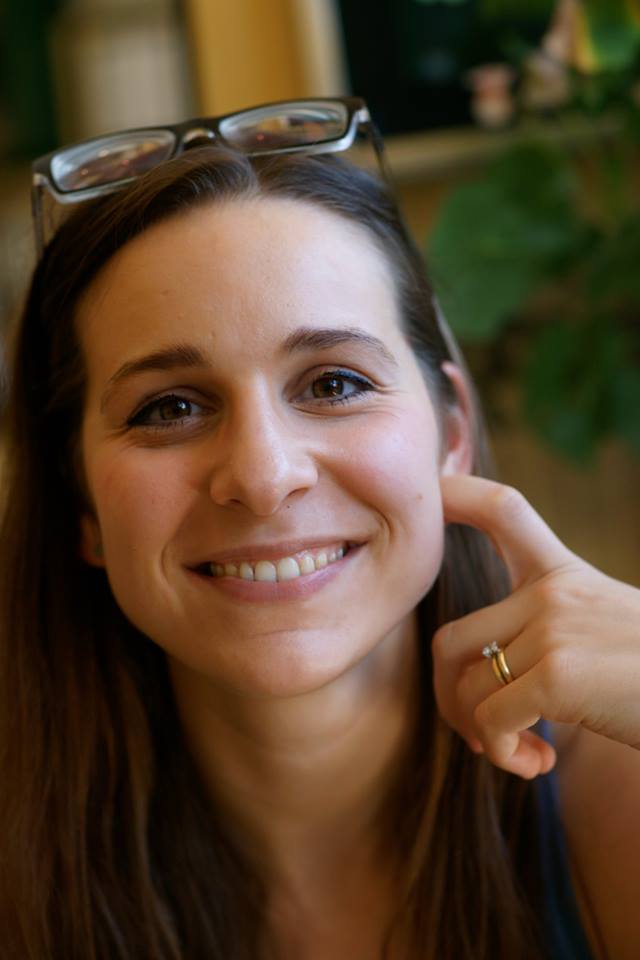B’shem Hashem elohei yisrael
Miyimini Michael u’mismoli gavriel
Umilfanai uriel um’akhorai refael
V’al roshi, v’al roshi, shekhinat el.
In the name of God, the God of Israel
To my right is Michael, to my left is Gavriel
In front of me Uriel, and behind me Rafael
And on my mind, and over me, Shekhinat El
—From traditional bedtime Shema, with my loose translation.
In Parashat Vayera, Avraham Avinu, our father Abraham, is sitting by his tent in the hot sun when he sees three strangers. This is what our Talmud in Bava Metzia 86b tells us about them: “Who were the three men? The angels Michael, Gabriel, and Rafael. Michael (“Who is like G‑d?”) came to bring the tidings to Sarah of Isaac’s birth; Rafael (“Healing of G‑d”), to heal Abraham; and Gabriel (“Might of G‑d”), to overturn Sodom. Of course, Shekhinat El—the Presence of G-d—mentioned in the song above, is God’s presence inside each one of us.
These strangers, we learn, are angels, representing different aspects of God. Michael represents loving-kindness and wonder—who is like God, awesome in holiness?! Rafael represents transformative healing. Gavriel represents the power to destroy what needs to be destroyed. Thank God, Avraham welcomes them in. He says to them, “Adonai, my lords, please, if you find favor in your eyes to do so, don’t pass by your servant.”
You might have noticed that the Hebrew word for my lord is “Adonai”—it’s the word we use when we call out to God, my God. It doesn’t feel like a coincidence here. It feels like Avraham knew that these strangers—and we might even extrapolate all strangers—carry with them aspects of God. Now, these strangers are explicitly called angels or messengers of God in the text, but the text also tells us that all people are created b’tzelem Elohim, in the image of God. In our earliest parshiyot the Torah is drumming in the message: all people, even or especially the stranger, carry godliness inside of them.
So how does this story play out in our parashah? What happens after Avraham and Sarah welcome the strangers inside, wash their feet, share a meal with them, and listen to the wisdom that they’ve brought? Avraham is faced with a pair of communities that behave quite differently: Sodom and Gomorrah. The people of these communities did not seem to notice the godliness within strangers, and they threatened those who were new to their locale with violent acts. Later on in the Bible, in Nevi’im, our Prophets, Ezekiel 16:49 states clearly, “Behold: This is the sin of Sodom—pride, fullness of bread, and careless ease… she did not strengthen the hand of the poor and the needy.”
When God tells Avraham that God is considering destroying these greedy, violent communities, Avraham steps up and says no. He says no to God. He argues: it can’t be that everyone in Sodom and Gomorrah hates the stranger and persecutes them! Please, don’t destroy them; if there are a few good people around, let them be! The angel Michael, who represents wonder at God’s creations and loving-kindness toward each one of them, even to the point of heroism, seems to be with Avraham in that moment. This parashah teaches us that loving-kindness can be brave, it can be countercultural, and it can be godly.
Because after all, God concedes. There ends up being just one good family, but God makes sure that they get a chance to escape. God sustains and shelters the few righteous people, and teaches us that we need to do everything we can to save the innocent, even as the world seems to be crumbling around us. As the Talmud teaches us, Gavriel, the angel who represents productive destructive power, was there in that moment. And yet Michael—the loving, gentle angel—was there as well, saving the one family that resisted the violence, and maintaining Avraham’s love of humanity. Even through fear, and even in times of chaos. We need that balance when we face cruelty; we need to bring Avraham and Michael’s ḥesed, loving-kindness, with us, even in Sodom.








